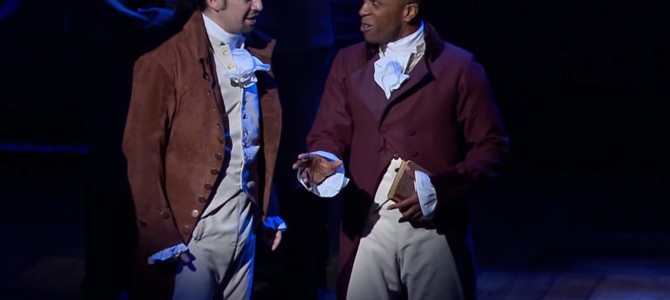The musical “Hamilton” is a very rare thing these days; it is a piece of theater that burst into mainstream society. For those too young to remember when “Rent” premiered, it may be the only show in their lifetimes to do so. What fueled the show’s success was a mixture of elements perfectly crafted by its creator Lin-Manuel Miranda.
First of all, it’s a wonderful show, the music pops, it’s charming and funny, it’s very hard not to like. Second, the subject matter of Alexander Hamilton’s life and his quirky character are both fascinating and compelling. But another huge part of the show’s success was the choice to have non-white actors play the major characters, like Thomas Jefferson and George Washington.
The concept wasn’t entirely new, in 2012 on Broadway, James Earl Jones had played a character based on an ex-president at the 1960 Democratic convention, obviously long before Barack Obama broke the White House color barrier. But Miranda’s experiment was on a much larger scale, and held much more significance.
An obvious part of what “Hamilton’s” casting was doing was trying to make it easier for non-white Americans to see themselves in story of the American founding. This is absolutely right and proper when Thomas Jefferson drafted the words “all men are created equal” and when George Washington and Hamilton fought for that premise, they were not claiming any special ownership of it.
They were the authors of documents and events; they were not the authors of the rights and freedoms that became the imperfectly executed foundation of the American experiment. Those rights and freedoms are authored by God, or if you prefer, nature. They are not proprietary, they are universal. But as Karol Markowitz ponders in the New York Post, the very newspaper Hamilton founded, the musical might have gotten a very different reaction today than it did in February of 2015.
I tend to think contra Karol that the pure magnificence of the show would protect it from cancellation, but I admit that may be naïve. I do think the fact that the creator of the show is a person of color and it gave huge opportunities to non-white actors would have made the upper middle class white wokesters responsible for most of the inane progressive jibber jabber to keep their mouths shut about it.
One thing that is notable about what was at the time a very bold choice is how little pushback, if any, there was against it. Not only was pretty much nobody offended by the portrayals of the founders, everybody pretty much loved it. Some believe the real story of Donald Trump’s victory in 2016 was a “whitelash” in which white voters rejected the Obama presidency because he was black; there was no evidence for that in the overwhelming success of Hamilton.
The theater world has been gripped by issues of race for several years now. In fact, 2020 was supposed to be “Jubilee 2020” in which dozens of theaters across the country pledged not to produce any plays by straight, white, cis, able-bodied men. Ironically, it instead became the year where no theater is produced at all. Instead of a jubilee, the virus created a famine.
But dark houses and empty movie studios and TV lots have not stopped the churn of racial battles in entertainment. White actors are leaving roles where they voice non-white characters and promising to never play a person of color. This seems shortsighted and frankly weird.
There are two main reasons we see this, the first is somewhat therapeutic. Under today’s anti-racism pedagogical models “the work” of dismantling racism prizes being uncomfortable and sacrificing. Admitting you were wrong to take a role and saying you won’t do it anymore fits that nicely. But there is also just the numbers game of representation. Theater has tried for decades to become more diverse, more open to non-white artists, and it has been wildly successful in many ways, as evidenced by, well, “Hamilton.”
Although art always exists in a context of a current social situation I like to think that “Hamilton” is bigger than any one moment. I like to think that in 100 years the show will be going up for audiences far more advanced in race relations than our own, and it becomes what America is, a phenomenon far greater than any of the men who created it, a profound statement for all to share and consider for the ages.









